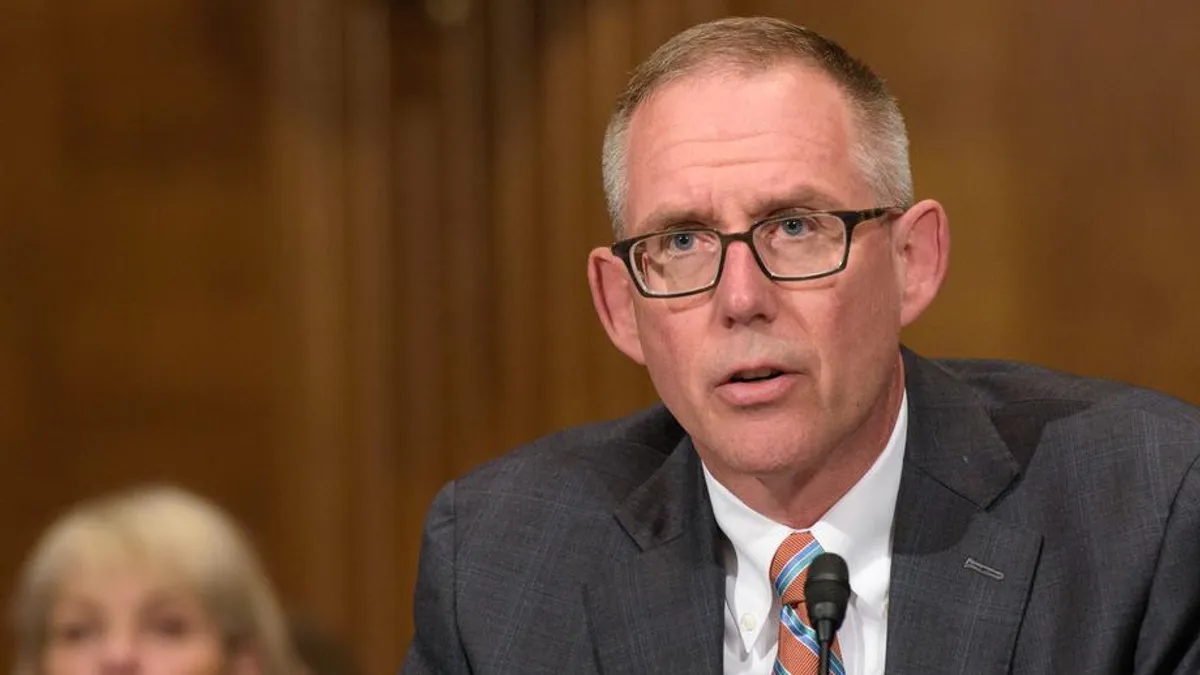Dive Brief:
- Employers are not in violation of the National Labor Relations Act (NLRA) when they create mandatory arbitration agreements in response to employees opting into a collective action, nor are they in violation when they discharge employees who refuse to sign such agreements, according to a ruling by the National Labor Relations Board (NLRB) Wednesday.
- The ruling, Cordúa Restuarants, Inc., follows the board's move to vacate its previous decision in the same case; it also follows and cites as precedent the U.S. Supreme Court's ruling in Epic Systems Corp. v. Lewis. In Cordúa, a group of employees filed a collective action against their employer in a U.S. District Court. After more employees opted in to the action, the employer began distributing a revised arbitration agreement requiring employees, as a condition of employment, to agree not to opt into collective actions. The agreement was lawful, NLRB said, because of the Epic decision's precedent that requiring individual arbitration of employment-related claims does not restrict employees' rights under Section 7 of the NLRA.
- Board member Lauren McFerran, the board's lone Democrat, dissented in part, saying that although the agreement created by the employer was valid under Epic, the employer imposed the agreement in response to protected concerted activity, sufficient to establish a violation under Section 8(a)(1) of the NLRA. The majority's finding, McFerran wrote, "departs from Board precedent without explanation."
Dive Insight:
Per an NLRB statement Wednesday, the Cordúa decision is the board's first to tackle the subject of lawfulness of employer conduct around mandatory arbitration since the High Court's Epic decision in 2018 — and NLRB's decision shouldn't come as a shock to employers, Michael Sullivan, principal at Goldberg Kohn, told HR Dive in an emailed statement.
"It may sound provocative to say that an employer has the right to force employees who seem to be interested in bringing a claim against their employer to sign an agreement waiving their rights to proceed collectively in court," he said, "but the Supreme Court ruled in Epic Systems v. Lewis that this was legal — and employers do it all the time."
Arbitration continues to be a complex issue for employers across the board, even after Epic. Attorneys have previously told HR Dive that though arbitration has its advantages in employment disputes, it isn't always the best option. Federal court rulings add another layer of complexity, as in the 8th U.S. Circuit Court of Appeals, where the court ruled earlier this month that merely providing a mandatory arbitration provision in an employee handbook was not an enforceable contract.
Worker advocates are also pushing back against the use of mandatory arbitration clauses. In the tech industry, various campaigns have been launched against their use in sexual harassment and assault contexts, most notably at Google. The company banned mandatory arbitration agreements in February. Competitors Facebook and Microsoft have dropped mandatory arbitration for sex harassment claims specifically.
Though the NLRB's ruling in Cordúa can be viewed as a positive one for employers, courts may still be skeptical of agreements that are rolled out in response to the filing of a class action lawsuit, Robin E. Largent, partner at Carothers, DiSante and Freudenberger, wrote in a blog post.













